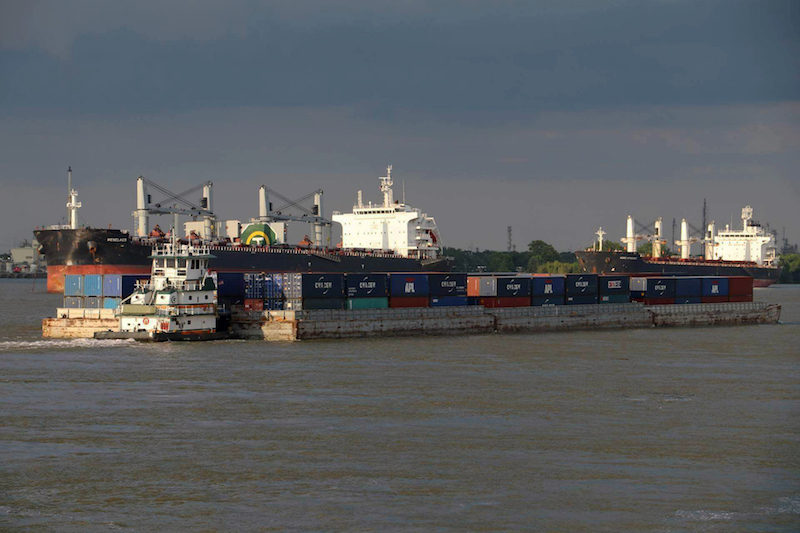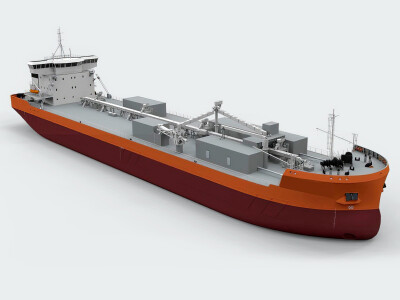The cover story in the upcoming March issue of WorkBoat is about an old idea that on its surface makes a lot of sense. It’s fairly simple. Take containers off of trucks and railcars and put them on barges, shrinking the carbon footprint and easing congestion on highways and other roadways.
Now that sounds like an idea that should be wildly successful. Well, not really.
Over the years, the federal government has helped fund and promote the idea — container-on-barge (COB) transportation services. But once the government funding ran out, the COB service would usually be discontinued. For the private sector, it would be a money loser.
As editors Ken Hocke and Kirk Moore wrote in the story, despite this, the national effort to develop COB services continues. Why? In large part because of the nation’s transportation bottlenecks on land: choking highway traffic, delayed reinvestment in infrastructure, and the costs those impose on the public and private sectors. And the waterways can handle more traffic.
As Scott Davies of the Maritime Administration told WorkBoat, “the waterways are the only mode that has any major capacity available.”
He said that many highways around ports in major transport corridors are already at capacity, without enough money to make big improvements.
“We just don’t have the money in the Highway Trust Fund … the waterways is the only mode” with 25,000 miles including 30 major urban areas, Davies said. “The system is there, it requires a minimal amount of investment.”
Making better use of the waterways for these services seems to make sense. But unless the cargo and demand is there, and thus revenue, the private sector won’t jump in.
Davies said four factors must be there for a COB service to succeed. First, the community must be on board, commit freight. Next, the players must have the right operational framework in place from the beginning — the correct vessels to handle the job. Third, public benefits must be a priority. That means less highway traffic and improved air quality. Finally, COB must not cost more than truck or rail.
These costs, as Davies said, must be aligned.





